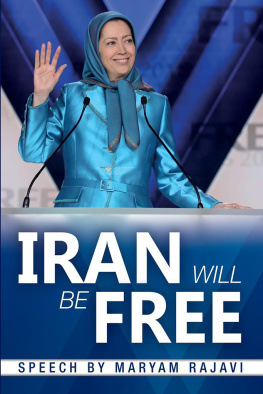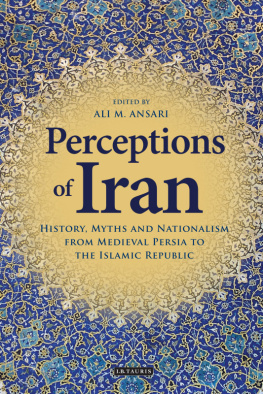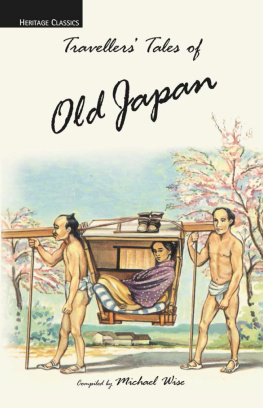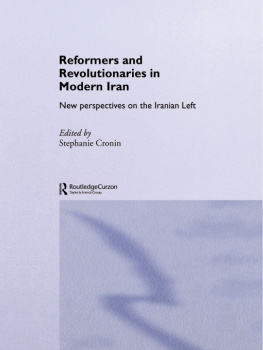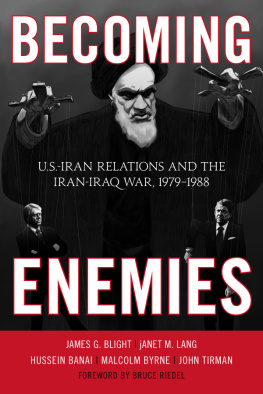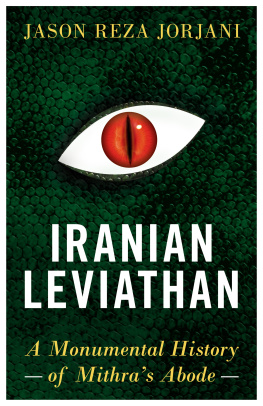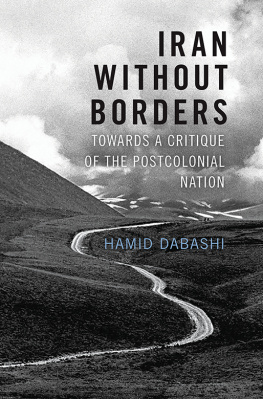ROUTLEDGE LIBRARY EDITIONS:
LANGUAGE AND LITERATURE OF THE
MIDDLE EAST
Volume 8
IRANIAN FOLK NARRATIVE
IRANIAN FOLK NARRATIVE
A Survey of Scholarship
JULIET RADHAYRAPETIAN
First published in 1990 by Garland Publishing, Inc.
This edition first published in 2017
by Routledge
2 Park Square, Milton Park, Abingdon, Oxon OX14 4RN
and by Routledge
711 Third Avenue, New York, NY 10017
Routledge is an imprint of the Taylor & Francis Group, an informa business
1990 Juliet Radhayrapetian
All rights reserved. No part of this book may be reprinted or reproduced or utilised in any form or by any electronic, mechanical, or other means, now known or hereafter invented, including photocopying and recording, or in any information storage or retrieval system, without permission in writing from the publishers.
Trademark notice: Product or corporate names may be trademarks or registered trademarks, and are used only for identification and explanation without intent to infringe.
British Library Cataloguing in Publication Data
A catalogue record for this book is available from the British Library
ISBN: 978-1-138-68297-9 (Set)
ISBN: 978-1-315-45973-8 (Set) (ebk)
ISBN: 978-1-138-69905-2 (Volume 8) (hbk)
ISBN: 978-1-138-69906-9 (Volume 8) (pbk)
ISBN: 978-1-315-51541-0 (Volume 8) (ebk)
Publishers Note
The publisher has gone to great lengths to ensure the quality of this reprint but points out that some imperfections in the original copies may be apparent.
Disclaimer
The publisher has made every effort to trace copyright holders and would welcome correspondence from those they have been unable to trace.
IRANIAN FOLK NARRATIVE
A Survey of Scholarship
Juliet Radhayrapetian
1990 Juliet Radhayrapetian
All rights reserved
Library of Congress Cataloging-in-Publication Data
Radhayrapetian, Juliet.
Iranian folk narrative: a survey of scholarship / Juliet Radhayrapetian.
p. cm. (Garland reference library of the humanities; vol. 1285) (Garland folklore library; vol. 1)
Thesis (doctoral)UCLA, 1987.
Includes bibliographical references.
ISBN 0-8240-7145-X (alk. paper)
1. TalesIranHistory and criticism. I. Title. II. Series. III. Series: Garland folklore library; 1.
GR290.R33 1990
398.20955dc20
8927418
CIP
Printed on acid-free, 250-year-life paper
Manufactured in the United States of America
For my mother, Hisham,
Giselle, Lillie, and my
teachers past and present
Contents
The Garland Folklore Library series consists primarily of meritorious Masters theses and deserving doctoral dissertations in the field of folklore which for one reason or another were not published upon their initial completion. In theory, all theses and dissertations are supposed to be contributions to the collective knowledge of a given discipline, but in practice it seems the vast majority are simply filed and forgotten. Sometimes the dissertation is too technical; sometimes it is too long for it to be welcomed for publication by cost-conscious university presses. Sometimes the dissertation is eminently publishable, but its author by the time the dissertation is finished is so heartily sick of the subject that he or she wants to put it aside forever.
In any case, there are a number of outstanding dissertations in folklore which warrant a wider readership and which belong in the library of any educational institution or individual with a serious interest in folklore. A few of these are in fact already well known to professional folklorists who may have bothered to send for them through inter-library loan or in more recent times purchased copies from University Microfilms International in Ann Arbor, Michigan. However, it should be noted that not all dissertations are available through UMI. The appearance of selected folklore dissertations and theses, both old and new, in the Garland Folklore Library series will make it much easier for libraries and individuals to obtain these significant studies.
Among the most important hitherto unpublished folklore dissertations are such works as motif and/or tale type indices, historic-geographic (comparative) in-depth studies of single folktales or ballads, and surveys of specialized folklore scholarship, e.g., of a particular country or group. There are in addition valuable field collections of folklore data to be found in dissertations. Clearly, there is no dearth of dissertations in folklore which could and should be published. Folklore field data, for example, never ceases to be of valueeven years after its collection. It is the intention of the Garland Folklore Library series to make a number of folklore theses and dissertations available to the growing worldwide community of folklorists.
In the study of Indo-European folk narrative which began in the early nineteenth century, one critical geographical-cultural area which is less well known than some others is Iran. Whether or not the origin of Indo-European folktales is really India as was fervently advocated and argued in the nineteenth and early twentieth centuries, there can be no question that folktale traditions in ancient and modern Iran are essential for investigations of the links between Asian and European folktale cognates. Unfortunately, much of the necessary textual material has not yet been translated from Farsi and the same holds true for the scholarship devoted to such narrative data.
It is for this reason that folk narrative specialists interested in the Indo-European tale generally will warmly welcome Dr. Juliet Radhayrapetians admirable survey of narrative scholarship in Iran. In this dissertation, Dr. Radhayrapetian gives a detailed account of early descriptions of traditional storytelling in Iran as found in travelers reports followed by critical overviews of the development of interest in folkloristics in Iran as found among Western as well as native scholars. While the names of Arthur Christensen and L.P. Elwell-Sutton may be known to folklorists for their pioneering efforts in the study of folktales in Iran, the names of the Iranian folklorists will be new to most folklorists. The dedicated struggle of these individuals to establish folkloristics as a legitimate academic enterprise in Iran has striking parallels in many parts of the worldin times past and present.
Juliet Radhayrapetian was admirably qualified to undertake the project she chose for her dissertation. Born in Tehran in 1950, she took her B.A. in English (1971) and her M.A. in Linguistics (1973) from Tehran University. It was at that time that she learned the Old Persian and Middle Iranian languages. Her training in folklore proper came from UCLA where she earned her M.A. in folklore and mythology in 1977 and her doctorate in 1987 with the completion of the present study. Her thorough discussion of the relevant literature will make many of the results of Iranian folk narrative scholarship available in English for the first time. Her inclusion of samples of actual folk narratives from both the early travelers reports and modern scholars (in her appendices) will give the reader a tiny taste of actual legends and folktales which will very likely succeed in whetting the readers appetite for more. Folklorists have good reason to be grateful to Juliet Radhayrapetian for making what was essentially terra incognita intelligible to a non-Farsi reading folklore public.


